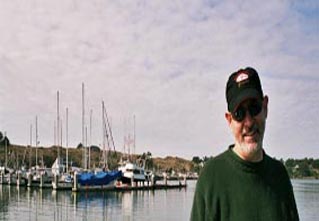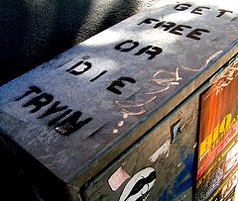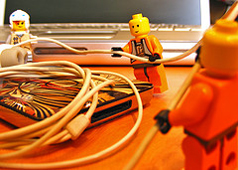This month would have been my dad’s 105th birthday, and I’m talking about some things that he taught me over the course of the rest of this month. I don’t remember my dad ever sitting down with me and saying “”Listen up…you need to learn this…” He taught by his life example, and a lot of the things on my list are things that were just clear in how he went about living. I “learned something new every day” I spent with my dad, particularly as I got older and started paying more attention. But at the same time, I am very aware of things that I learned early, because that’s just how things were. To start from the beginning of this series of posts, click here.
My dad grew up as part of an itinerant farm labor family, pre-dust bowl, and pre-world wars. Although it may not seem possible, it was pre-airplane, and the most common form of transportation in the US was by foot or on horseback. Most of the country’s population lived “on the farm,” even if they didn’t “own” the farm. I know very little about farming — other than that it is hard work — but as a result of visiting one particular former Saskatchewan student’s farm, I have some idea about how a farmer accumulates knowledge about a lot of things. This is mostly because farmers are generally not proximate neighbors. If something broke, particularly in the early part of the 20th century, you had to fix it yourself if at all possible. As a result, there is a sense of independence…of self-reliance.
In my dad’s case, it went farther than just fixing things himself. It meant building things himself. And…it meant believing things as a result of thinking about them, rather than just accepting someone’s word. What you knew, and what you believed, was a result of thousands of separate bits of knowledge, and thousands of times testing that knowledge against the practical benchmark of “does this work/make sense/help?”
So he taught me independence of thought, and self-reliance on the proof of results. I’m about to mix a whole bunch of metaphors, here, but stay with me, please. If everybody else tells you that white is black, I was taught to discover the truth myself, and then filter the opinions of those who came to a different conclusion. This part is important, given the political and cultural divisions endemic to life today. Coming to a different conclusion than someone else didn’t mean they were stupid. It meant that their solution didn’t work for me. No harm, no foul.
But the reverse was also true. If someone else’s solution was being forced upon you, my dad taught me that it was noble to proclaim that the emperor had no clothes. Not that you should force your set of clothes upon him, but that you believed in a different solution based upon the reality of what worked for you.
And here’s the second important thing: If you hadn’t tested the alternative (no clothes) reality, or had a better solution, it wasn’t your job to be the new emperor. But…if somebody asked about your solution, you should share it freely, in case it worked for other people.
And isn’t leadership by example, and contributing to the common knowledge base, in its own way, a great leadership strategy?
How about you? What do you know that might help me do things better? Please leave a comment and let me know.
Ipod shuffle status (What is this?): 4282 (Oh, Lady Be Good – Count Basie) of 7875
…
Get my EBook The Choir in Modern Worship












You must log in to post a comment.